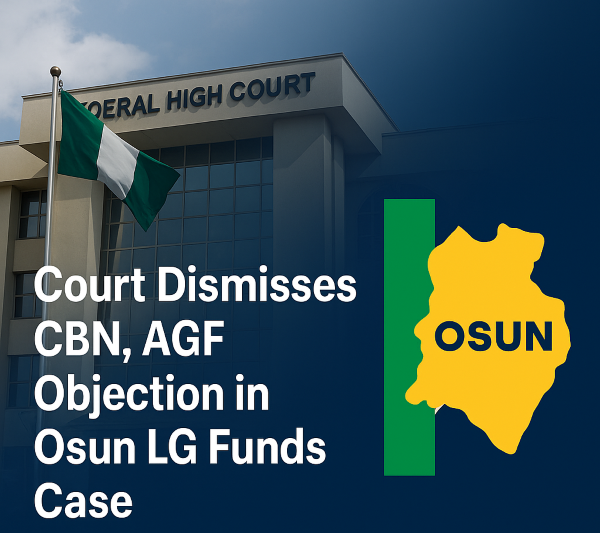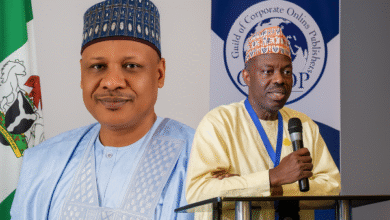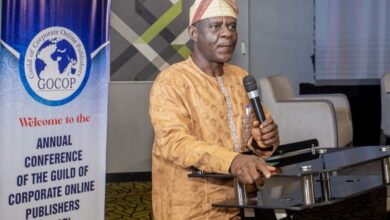
The Federal High Court in Abuja has dismissed preliminary objections filed by the Central Bank of Nigeria (CBN) and the Accountant-General of the Federation (AGF) against a suit instituted by the Osun State Government over withheld local government allocations.
Justice Emeka Nwite, in a decisive ruling on Thursday, affirmed that the Attorney-General (AG) of Osun State has the legal right to represent local government councils in the case — a significant ruling that strengthens the power of state attorneys-general to act in defence of local government finances.
Court Upholds Osun’s Legal Standing
Delivering his judgment, Justice Nwite ruled that the Osun AG possessed the locus standi (legal capacity) to institute the suit on behalf of the state’s local government authorities.
He noted that as the chief law officer of the state, the AG has a constitutional obligation to act in the public interest, including safeguarding statutory allocations intended for local governments.
“The plaintiff, as the chief law officer of the state, has the duty and authority to act in the public interest, including protecting local government allocations,” the court held.
The court therefore dismissed the objections filed by the CBN and AGF, who had argued that the Osun AG lacked standing to sue on behalf of the local councils in the Osun LG Funds case.
No Abuse of Court Process
Justice Nwite further ruled that the ongoing case did not constitute an abuse of judicial process.
He observed that although parallel proceedings in similar matters could lead to duplication of judicial resources, there was no evidence that the Osun AG had acted improperly or sought to misuse the court process.
“The plaintiff has not acted in a biased or deliberate manner in seeking the present action,” the judge added.
Transfer of Case to Abuja Valid, Says Court
The court also upheld the administrative transfer of the case from the Osogbo Division to the Abuja Division of the Federal High Court.
Justice Nwite ruled that the Chief Judge of the Federal High Court acted within his discretionary powers under Section 21(1) of the Federal High Court Act, which authorises the Chief Judge to transfer any case to another division “at any time or stage of the proceedings before final judgment.”
Accordingly, the court dismissed the Osun Government’s application seeking to return the matter to Osogbo, ruling that the transfer “was valid and within the administrative competence of the Chief Judge.”
Allegation of Bias Dismissed
On the issue of alleged bias, the judge described the claim as “wholly unfounded and speculative.”
He explained that administrative transfers do not amount to judicial bias unless clear evidence exists that a judge’s decision is influenced by personal interest or prejudice.
“A mere administrative act by the Chief Judge transferring a case cannot, by any stretch, amount to bias. The plaintiff has not produced any credible evidence to support such a grave allegation,” he stated.
Next Steps: Hearing Continues October 17
Justice Nwite adjourned the Osun LG Funds case to October 17, 2025, for continuation of hearing.
The court had earlier, on September 22, struck out the name of the Attorney-General of the Federation from the suit after the Osun State Government withdrew its claim against him, citing a related matter already before the Supreme Court.
That same day, the Osun Government, represented by Musibau Adetumbi, SAN, had filed a motion seeking to return the case to the Osogbo Division — a motion that was subsequently dismissed in the latest ruling.
Background: Dispute Over Withheld LG Allocations
The legal dispute stems from the Osun State Government’s suit against the Federal Government, seeking to restrain it from releasing withheld local government funds to sacked officials elected under former Governor Adegboyega Oyetola’s administration.
The case highlights ongoing tensions between state administrations and the federal government over the control and disbursement of local government allocations — an issue that continues to shape Nigeria’s evolving fiscal federalism and intergovernmental relations.











